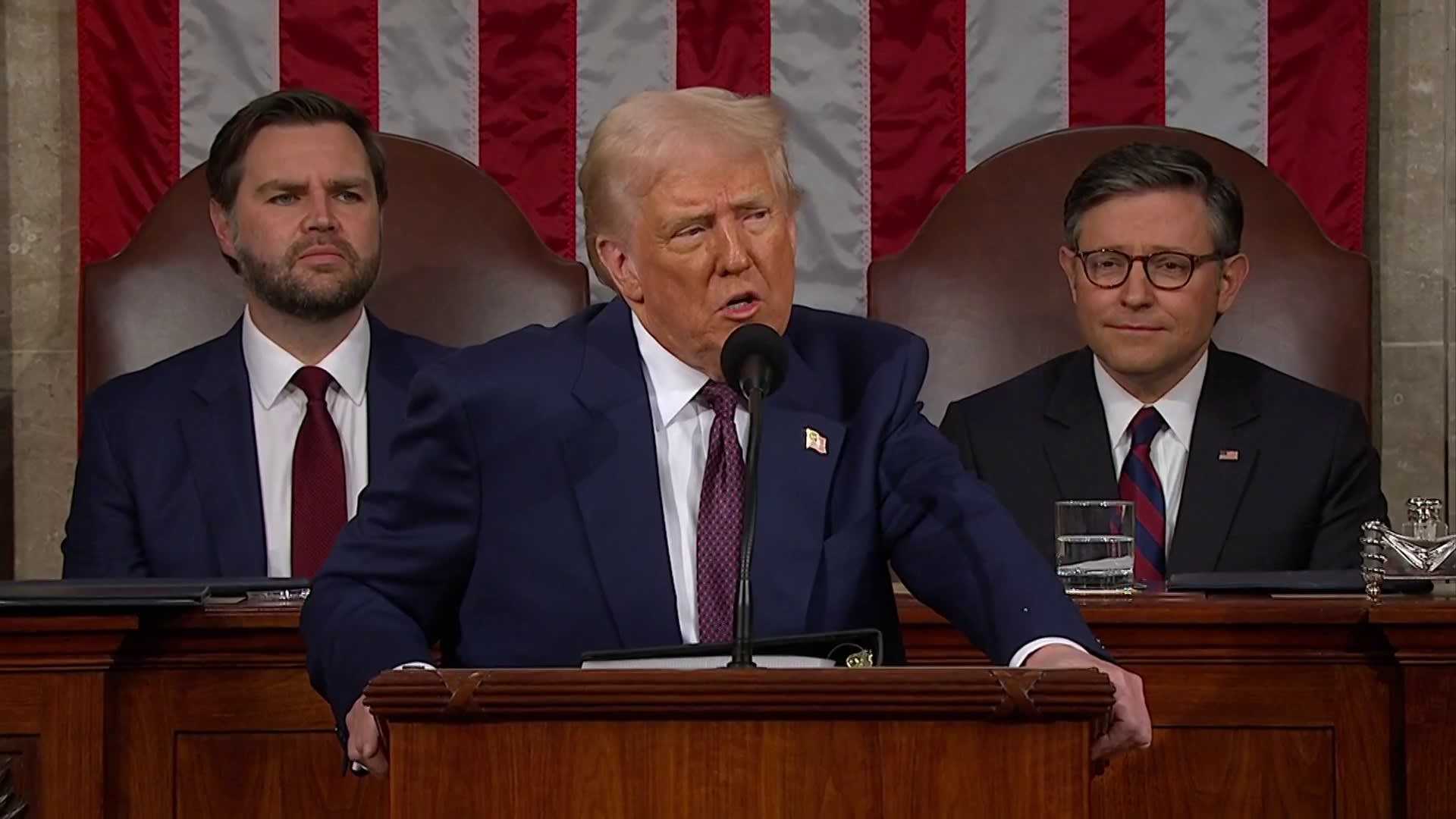Politics
Trump Delays Auto Tariffs, Navigates Trade Wars and Domestic Concerns

WASHINGTON, D.C. — The White House announced on March 5, 2025, that U.S. automakers will receive a 30-day reprieve from the 25% tariffs on goods imported from Mexico and Canada. The tariffs, which threaten increased costs for vehicles passing through North American borders multiple times during production, were briefly paused after President Donald Trump met with leaders from major American automotive companies, including Ford, General Motors, and Stellantis.
In a statement delivered by White House Press Secretary Karoline Leavitt, Trump affirmed, “We are going to give a one-month exemption on any autos coming through USMCA,” referring to the U.S.-Mexico-Canada Agreement reached during his first term. “This delay is at the request of the companies associated with USMCA and is necessary to avoid putting them at an economic disadvantage.”
Leavitt indicated the possibility of further exemptions for additional sectors, stirring investor optimism and boosting stock prices amid concerns about an intensifying trade war. However, she also confirmed that a new set of “reciprocal” tariffs, effectively mirroring trade barriers imposed on U.S. goods worldwide, is scheduled to take effect on April 2.
Leavitt responded to apprehensions about the economic repercussions of the tariffs, echoing Trump’s earlier sentiments about monumental reform and a robust manufacturing base. “The American people elected this president to stand up to foreign nations who have exploited our economy for decades, and that requires a little bit of disruption,” she said, encouraging Wall Street investors to reflect on the robust performance of the market during Trump’s previous term.
In a related discussion, Trump’s tariffs have been framed as part of a broader strategy to combat illegal immigration and drug smuggling, particularly regarding fentanyl. During his conversation with Canadian Prime Minister Justin Trudeau on March 5, Trump expressed dissatisfaction with Canada’s efforts to curb the flow of illegal drugs, stating, “Many people have died from fentanyl that came through the borders. He said that it’s improved, but I said, ‘That’s not good enough.'” Trudeau, who is expected to step down as prime minister, was reminded by Trump of his controversial proposal for Canada to join the U.S. as the 51st state.
The directives from the Trump administration signal a deferral of financial challenges for the auto manufacturing sector, yet uncertainty lingers over the potential for extended economic disruption as tariffs related to various industries loom on the horizon.
David Kelly, chief global strategist at J.P. Morgan Asset Management, stated, “The trouble with tariffs, to be succinct, is that they raise prices, slow economic growth, cut profits, increase unemployment, worsen inequality, diminish productivity, and increase global tensions. Other than that, they’re fine.”
Looking ahead, Trump’s administration is poised for sweeping changes, which include cuts to staffing at the Department of Veterans Affairs, a reflection of a broader governmental upheaval under Trump’s leadership. Reports indicate that the VA is set to reduce its workforce by 80,000 positions, initiated through a review led by the Department of Government Efficiency, focused on eliminating waste and reducing bureaucracy.
In a memo, VA Chief of Staff Christopher Syrek acknowledged the intention to revert the department’s staffing levels to those of late 2019, despite an increase in support personnel under the Biden administration to accommodate new veterans accessing care and benefits under the PACT Act.
Doug Collins, the Secretary of Veterans Affairs, proclaimed in a video statement that the review process would be thorough without compromising care or benefits. However, backlash from both parties is anticipated as cuts may impact service delivery, particularly following the implementation of key legislation aimed at improving veterans’ welfare.
Senator Richard Blumenthal, a Democrat from Connecticut, criticized the proposed cuts, suggesting they would prioritize privatization over veterans’ healthcare. Meanwhile, Republican Representative Mike Bost raised concerns about the potential consequences for veterans’ services amid these significant staffing changes.
In addition, the Trump administration’s crackdown on undocumented migration appears to have diminished as military flights to repatriate migrants to their countries have reportedly ceased, raising questions about the cost-effectiveness of utilizing military transport for measures against illegal immigration.












